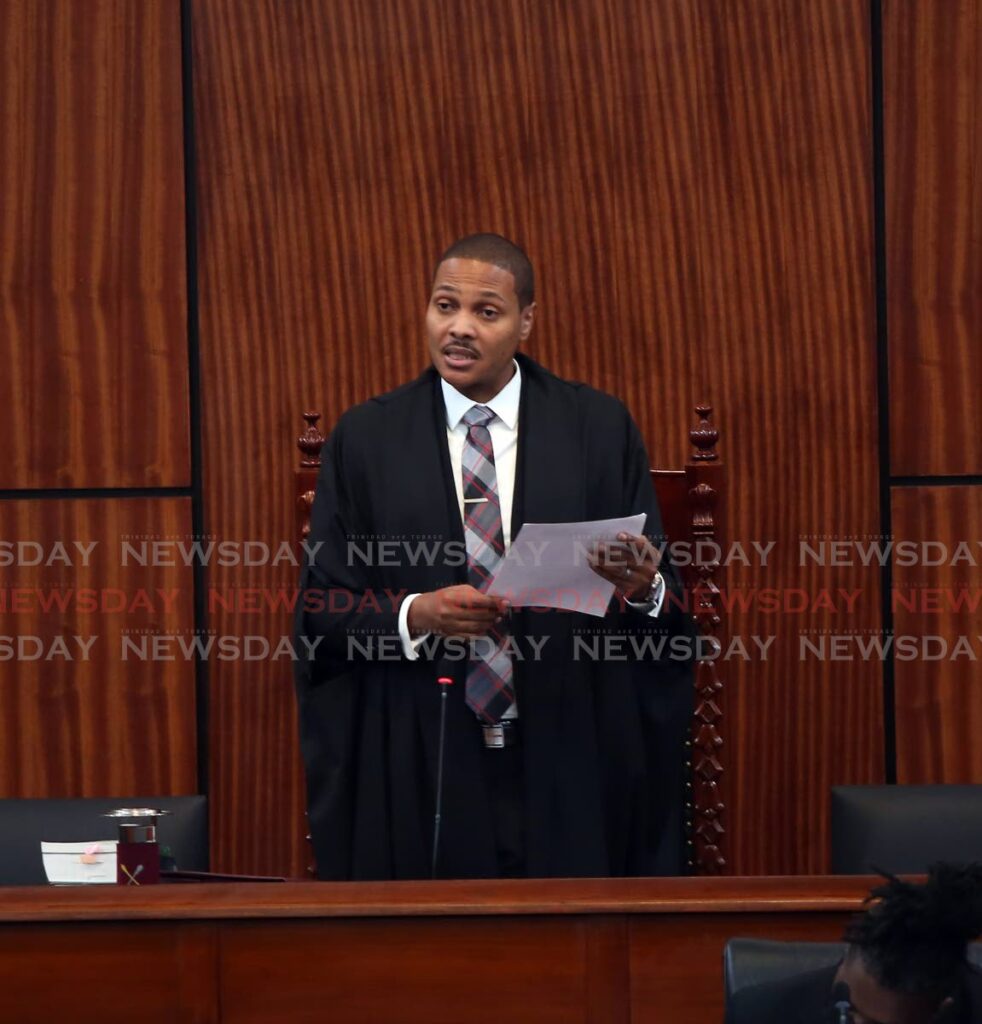Senate President’s heavy robes

WHILE the issue of who will be this country’s next President – the Head of State – has descended into the usual warmongering, Tuesday’s sitting of the Senate, in which Nigel De Freitas was declared the duly elected President, was not accompanied by fireworks.
In fact, there was arguably a moment of good humour, triggered by Senate Vice President Dr Muhammad Yunus Ibrahim making a slip of the tongue when he suspended the brief sitting for Mr De Freitas to be “robbed” and not robed.
Mr De Freitas assumes the post left vacant by Christine Kangaloo, who resigned the day prior ahead of Friday’s meeting of the Electoral College in which she has been put forward as the Government’s choice for President, replacing Paula-Mae Weekes. The Opposition has put forward its own nominee, Israel Khan, SC.
Nobody expects Friday’s proceedings to be as straightforward as Tuesday’s.
Mr De Freitas is a conservative choice. He served previously as vice president of the Senate for two successive parliaments. Right up to his new appointment, he was Minister in the Ministry of Agriculture, Lands and Fisheries.
But while Mr De Freitas is a familiar face, the Government did inject fresh blood into its Senate line-up with the appointment of Chaguanas Chamber of Commerce president Richie Sookhai.
The new robes donned by Mr De Freitas, though somewhat familiar to him, are nonetheless onerous.
In addition to serving, like the Speaker, as the presiding officer of a key legislative organ at a time of great political animosity, the Senate President is fourth in the Order of Precedence and acts as President of the country routinely. The office-holder is paid a salary of $29,590 plus perks, higher than an elected MP's.
While the focus in relation to the selection of the next President has been on the degree of independence to be expected, little attention has been paid to the issue of whether the President of the Senate, too, should be non-partisan.
Independent figures have held this position. The most famous example was Emmanuel Carter, a former clerk of the Senate, who served two terms under two successive governments. Mr Carter was acting president during the events of 1990.
Generally, however, the position is perceived as a political appointment, whatever the gravitas and decorum of the post-holder.
It is little wonder, then, that previous Senate presidents have become embroiled in controversies involving the government of the day, such as the section 34 fiasco.
Mr De Freitas is to be congratulated on his new role. But the old need for constitutional reform remains. And the discussion should not be limited to just the country’s President, but should also include the composition of the entire Senate chamber.


Comments
"Senate President’s heavy robes"